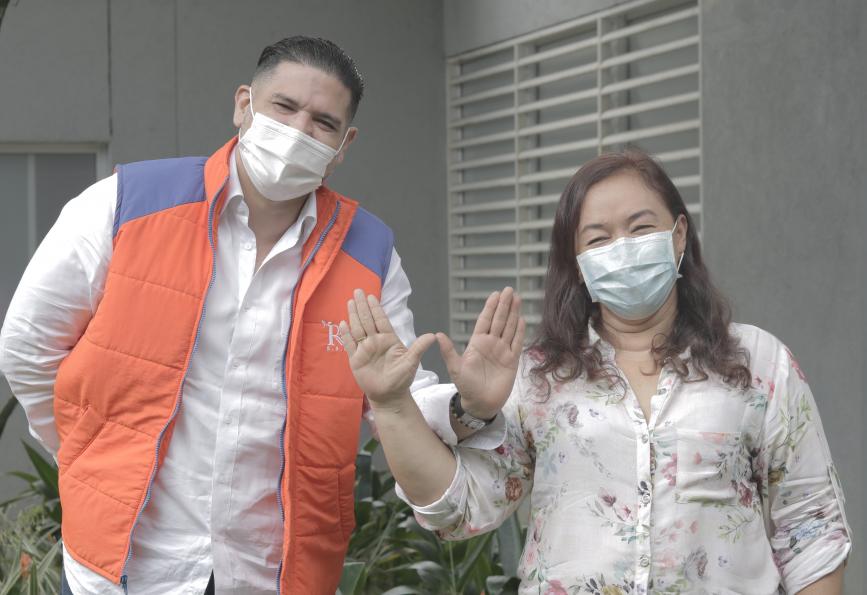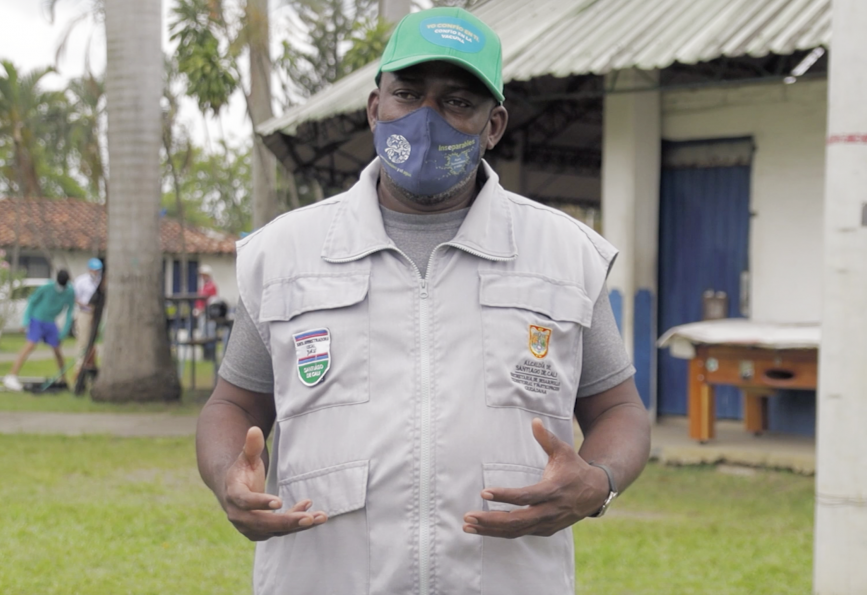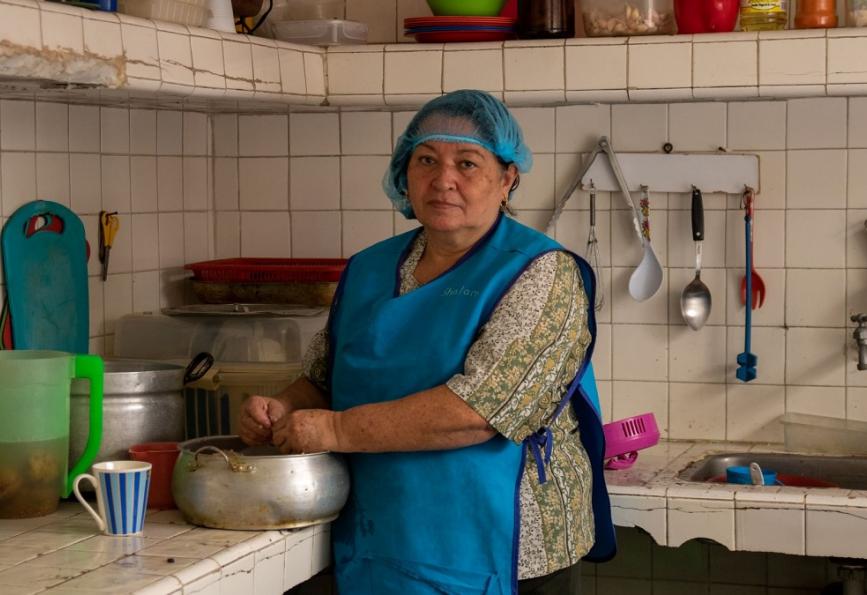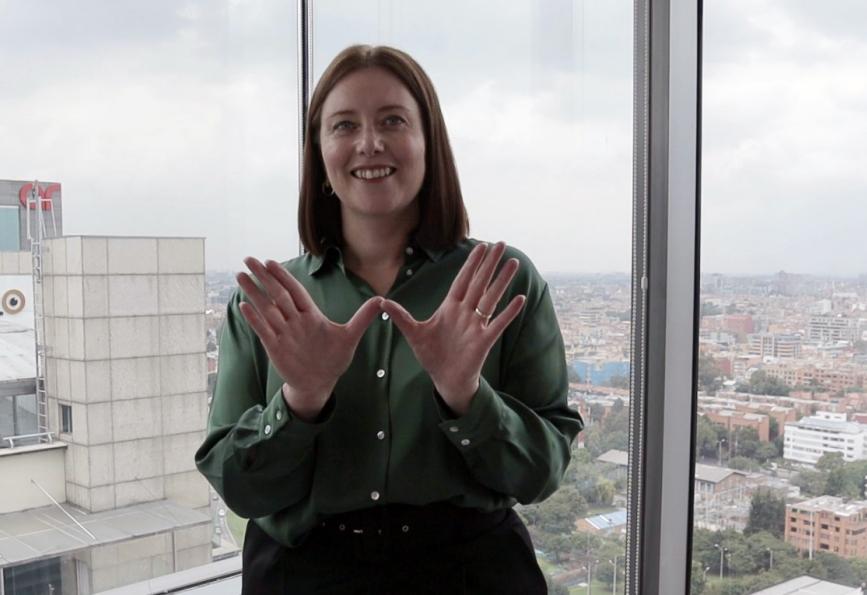
Published Date: 26 August, 2022
The communities that make up the bustling city of Cali, Colombia know all too well the costs of dengue, from the pain and suffering of the disease itself to families losing incomes while caring for relatives and vulnerable citizens struggling to access support.
These costs have only been compounded by the COVID-19 pandemic – but the community is facing them head on. In Colombia, 10.7% of cases can be found in Cali. Because of this the city has built a strong network of volunteers, healthcare workers and officials dedicated to stopping its spread.
The Wolbachia method is simple. But to help implement it and protect communities, we need the buy-in from every member of the community, from individuals right through to local governments. Since 2019, the World Mosquito Program has been working with this network in Cali to release Wolbachia mosquitoes and educate communities on how they can help reduce the threat of mosquito-borne diseases.
Soon, we’ll be commencing releases in new areas of Cali, using new technology and a drone release mechanism pioneered by our teams in Melbourne and Cali. As we enter our next phase of releases, we wanted to profile just some of the community members helping to implement the Wolbachia method and share the specific challenges they’re working to address.
Sandra Cardona, South East Health Network (Health Network Suroriente E.S.E.)
Sandra (pictured above) is part of the team at South East Health Network in Cali. While Cali is notorious for dengue cases, Sandra believes that, while the low number of cases reported since the pandemic began could be due to people misdiagnosing or under-reporting cases, the community is responding to their work. She believes that working with the community to identify dengue is essential to protecting Cali.
“Dengue continues to be a deadly disease for the city. Cali ranked second in the country for reports of dengue cases. After Cartagena, we were the second city. Unfortunately, dengue is a disease with symptoms that are very general and can easily be confused with any other disease … Dengue is a disease that requires education. So the best we can do as the South East Health Network is to educate the community in the prevention of dengue.”
Victor Mario Rentería Martínez, Mayor of Commune 15

As Mayor, Victor doesn’t just help run the city – he plays a key role in connecting with his community to help ensure they understand how Wolbachia works. While there was some initial fear about a method of mosquito control that didn’t kill mosquitoes, Commune 15 is now fully behind a solution that prevents their city’s most vulnerable.
“The community is receiving it well. At first they were scared, but now they understand the importance of Wolbachia and the importance of prevention. I think it is a very important method that allows us to prevent dengue for our children, for our senior citizens … because prevention is fundamental so that we do not have cases later.”
Mariela Hincapié, Manager of the Community Kitchen and President of the Users Network of the South East Health Network

Since the COVID-19 pandemic began many members of the community have lost their jobs and struggled to afford food. To support those struggling, Mariela runs a community kitchen set up by a local priest and the Mayor of Commune 16. After hearing about the World Mosquito Program from a former colleague, Mariela has also helped to raise awareness about the method while supporting the community with affordable meals.
“At the moment, Commune 16 of Cali is going through very difficult situations. Due to the pandemic, many people have been left unemployed, and price hikes of food have been high. So the community is going through a very, very difficult situation, especially in terms of food. That is why the Mayor’s office implemented some community kitchens … we can’t say we cover all the needs, but it helps a lot. Like everything nowadays, there has been a focus on COVID-19 … the World Mosquito Program is thinking not only about COVID-19 but also another disease which is also deadly to the population. We need to help the community by raising awareness that the Wolbachia method isn’t bad, that it can benefit all.”
Erika Thompson, Australian Ambassador to Colombia

The Department of Foreign Affairs and Trade is a funder of our work in Cali. In her 20 years as an Australian diplomat with the Department of Foreign Affairs and Trade, Erika Thompson has travelled around the world to support communities to thrive. While many approaches to public health can be difficult to implement, Erika says the simple nature of the Wolbachia method has helped it succeed in Colombia. According to Erika, the World Mosquito Program is the project she’s most proud to call Australian.
“It’s a brilliant method because it is so simple. It’s a creative, innovative resourceful solution but it’s simple … no more yellow fever, chikungunya, Zika or dengue. No damage to the environment, no damage to health through chemical sprays, and best of all the project can be implemented by the community. And it works. In Australia, we have eliminated dengue in less than 10 years through this method in our tropical regions in north Queensland. This clever, simple, environmentally-friendly and cost-effective solution is already saving lives and improving public health in Australia, in Colombia and around the world.”
Victor, Erika, Sandra and Mariela make up just a fraction of the people helping bring Wolbachia to Cali. From project management to providing care to the city’s most vulnerable, everyone has a role to play in a dengue-free Cali. In the coming months, we’ll provide updates on the next phase of releases in Cali, and profile more of the amazing people making them possible. In the meantime, you can follow along here.

